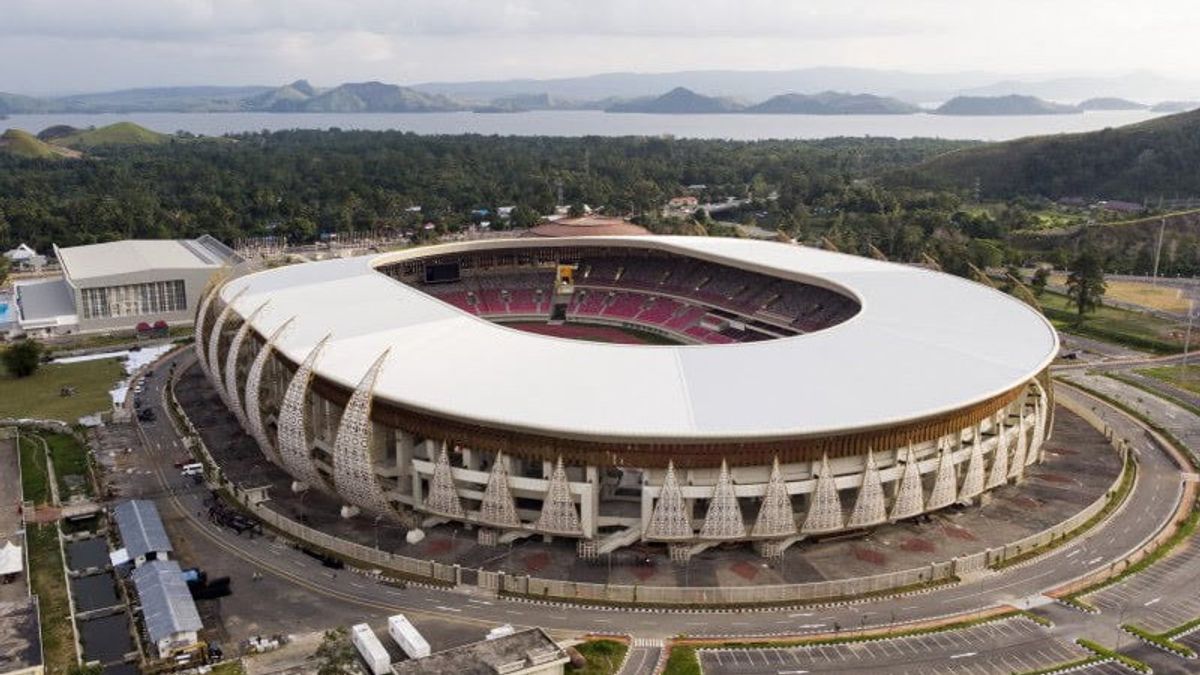JAKARTA - The Presidential Staff Office (KSP) stated that the government of President Joko Widodo (Jokowi) and Vice President Ma'ruf Amin have made two approaches to efforts to build Papua for the last 3 years.
Deputy V for Security and Human Rights KSP Jaleswari Pramodhawardani conveyed this approach through sustainable infrastructure and human resources (HR).
Jaleswari hopes that the local government in Papua will follow up on the basis that has been built by continuing to get closer and building a two-way communication pattern with the community spread across the Earth of Cendrawasih.
In addition, according to him, the most important thing is how public services and the fulfillment of people's rights continue to be put forward.
He said President Jokowi on every occasion had emphasized that the current national development paradigm is not Java or Sumatra central, but must be oriented towards a central Indonesia.
According to him, since the beginning of his reign, Jokowi has been committed to building a central Indonesia starting from the Land of Papua.
"The visit of the President has reached 15 times to Papua. That is important because the Head of State sees it based on data and facts," Jaleswari said in a press release, quoted from Antara, Friday, October 21.
He added that Jokowi's approach to infrastructure was from the most basic things, from education to health services.
Since the first period of President Jokowi's administration until the second term with Vice President Ma'ruf Amin, the commitment to provide social justice for all Indonesian people, including in Papua and West Papua, has been maintained.
This commitment, said Jaleswari, was not just rhetoric, but was presented by Jokowi through Presidential Instruction (Inpres) Number 9 of 2020 concerning the Acceleration of Development of Welfare in Papua and West Papua.
The Presidential Instruction requires 43 ministries or institutions to participate in accelerating the development of the welfare of the Land of Papua.
"So, it is not just a commitment to visit there, which has been 15 times, but through the issuance of supporting regulations, all of which are in the National Medium-Term Development Plan. In fact, Papua is a National Priority Program," he said.
Regarding the development of Papuan human resources, Jaleswari said that the government is not only taking a security approach, but also a welfare approach. Papuans with their affirmative policies can get fulfillment of rights that have not been optimal so far, including a cultural approach.
Jaleswari then gave an example of the development of human resources. In this case, the Government not only fulfills the rights of education, health, and so on, but also provides assistance in a sustainable manner, in addition to budget allocations that must be right on target.
"The decision to implement the National Sports Week in Papua so that the one-price fuel oil policy can be successfully realized there. This is proof that the commitment that is carried out optimally will realize Indonesia's national development," he said.
Meanwhile, Deputy for Government Policy Support and National Insight of the Secretariat of Vice President Velix Wanggai emphasized that the government has laid the foundation for development in Papua for the next 20 years.
"This means that in the last 8 years and that foundation is important for us Papuan people. Later the policy will be called the 2022-2041 Papuan Development Acceleration Master Plan, and will be a reference for the formulation of RPJMN and RPJMD," said Velix.
Velix gave an example, the government's policy of increasing 2.25 percent of special autonomy funds (otsus) from the ceiling of the national general allocation fund (DAU) will bring many positive changes in Papua, while at the same time strengthening communication between the central government and all regional governments in Papua, in order to encourage the acceleration of development in various fields.
From the Regional Autonomy (OTDA) policy, he continued, the Government has proven that public services are getting closer to the community and have an impact on Papuan economic growth. Meanwhile, from a cultural perspective, he assessed that the government had used a very good approach based on local wisdom and customs.
The English, Chinese, Japanese, Arabic, and French versions are automatically generated by the AI. So there may still be inaccuracies in translating, please always see Indonesian as our main language. (system supported by DigitalSiber.id)













